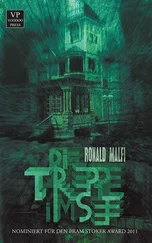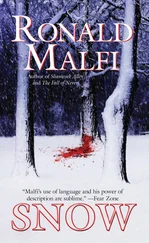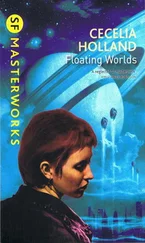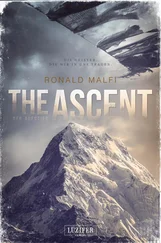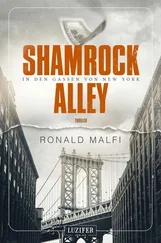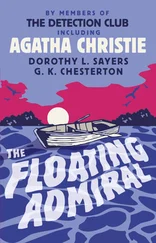“As far as you know,” I asked her, “did anyone ever report any suspected child abuse?”
“Other than my suggestion to the board that something strange was going on in that house,” Althea said, “I don’t believe so. And understand I never suggested any type of child abuse to the board.” Again, her small eyes narrowed. They were the color of candle wax threaded with reddened blood vessels. “These are strange things you’ve come to ask me, son. You’ve already said you don’t think what happened to that little boy was an accident. Care to tell me what you do think happened?”
“I think he was killed.” The words came assuredly and without reservation. Any doubt I’d been holding on to regarding this scenario was gradually sloughing away. “I don’t know how to prove it, but I think the boy’s uncle did it.”
The old woman raised her eyebrows, and it was almost comical. “Have you gone to the police with your theory?”
“Sort of,” I said, thinking, What theory? All I’ve got are a bunch of innuendoes, hunches, and an unfinished, handwritten manuscript. There is no motive, no hard evidence. “My brother’s a cop. I spoke to him about it.”
“What did he say?”
I smirked. “That I should let things go. That I’m digging around and wasting all this time—chasing what I started out following, as you say—for no reason.”
A wry smile caused Althea’s cadaverous face to look somehow more sinister. Death was breathing down her neck; all of a sudden I caught a whiff of it—the stale, decaying, almost sweet smell of a mummy. Then she shifted in her bed. “You’ve asked me all your questions?”
“Yes, ma’am.”
“Good. Because I have one of my own,” she said. “But if I’m gonna ask it, I’m gonna need some water to wet my throat. They’ve got cups at the nurses’ station out in the hallway. Would you mind?”
I went into the hallway. There was now a young nurse, attractive and middle-aged with very brown skin and nice teeth, behind the circular Formica desk. I requested a glass of water for Althea, and she said it would be no problem. Then she asked if I had already signed the visitors’ log. I assured her I had not. To this, she only smiled wider and slid a clipboard in front of me. There was a pen attached to it by a length of string. For reasons that still remain a mystery to me, I printed the name Alexander Sharpe in the appropriate box, then handed the clipboard back to her.
“Even trade,” said the nurse, accepting the clipboard and handing me a Tupperware pitcher half-filled with water and a small plastic cup with the hospital’s initials printed on the side in permanent marker.
Back in the room, I filled the cup with water and handed it to Althea. She accepted it, holding it with two hands like a child, and I watched her with some trepidation, certain that she would either spill the water all over herself or begin choking on it at any moment. But she did neither.
“Ahhh.” She sighed, emptying the cup. She seemed much weaker than she had just moments ago—the death clock, clicking one more minute closer to demise. “Good, good.”
I took the empty cup from her. “More?”
“Not unless you want to buzz someone in here to change these sheets in about three minutes.” Althea waved a brittle hand at me, and I set the cup down beside the photograph of her son. “Stuff goes through me like lightning nowadays.” She blamed the medication she was on for thinning her blood.
Sitting down in the chair, I folded my hands between my legs and leaned closer to her. “What is it you wanted to ask me?”
“Earlier you mentioned ghosts.”
“Yes. I asked if you believed in them.”
“Did I give you an answer?”
“No.”
“Would you like to hear one?”
Feeling that she was toying with me, I couldn’t help but grin. I said, “If it suits you.”
Jangling like a newborn colt, the old woman raised her arms and flattened out her wrinkled bed-sheets. She sucked in a shallow breath as her eyes began to tighten with what I believed to be deeper scrutiny of my character. But as she began to speak again, I realized she was going back to her youth, retracing those fading footprints down the path of her own childhood.
“In the summer of my sixth year,” she began, “my mother took odd jobs throughout the county. You see, my father had run off the previous summer with some woman he’d met down at Orville’s drugstore—this was in Louisiana, where I grew up—and my mother wasn’t going to let her only child starve because of him. He left her with nothing but the clothes on our backs and the ramshackle little tar paper hovel over in Cameron. We’d needed a car soon after he’d left, and I remember going with my mother to the used auto dealer off Best Street where, for one hundred and seventy-five dollars, she bought an old Chrysler the color of a house fire and about as reliable as the man my mother cursed the whole drive back to Cameron.
“The jobs my mother took consisted of housekeeping services for a rotation of regulars in the upper-class section of the city—great big gabled mansions with white columns and gardens so rich and thick you could actually get lost in ‘em. She hit each house on her rotation once a week, and since I was too young to be left on my own and because there was no sense in payin’ a babysitter more than my mamma was probably making cleaning those big houses, she dragged me along with her.
“Mostly, I would sit in the living room on some expensive couch, my hands firmly in my lap while I watched the television for hours. My mamma wouldn’t even let me have a drink or a snack or anything like that, for fear I’d spill it on the couch. Other times I would sit and draw pictures at the kitchen table and leave them for the homeowners. You might think these home owners saw us as help and nothing more, and for the most part you’d be right, but it would be a lie to say I didn’t go into some of those homes to find my artwork on their refrigerators, just as if I was their own child.”
Her eyes twinkled with the memory, and I could tell it was a very important one to her.
“My favorite house belonged to the Mayhews, a handsome couple who had three older children away at college. The house was a beautiful bit of architecture—it certainly took my mamma all day to clean—but the best part was the sloping green lawn and surrounding gardens that dipped toward a lush palmetto grove that separated the Mayhews’ backyard from the house directly behind them.
“One afternoon I was out playing in the palmetto grove when I saw a little girl, perhaps just slightly older than me, through the trees in the other yard. She was a skinny, pale-faced little thing with eyes like hen’s eggs and very delicate features. Even at my young age, I recognized an intimate fragility in her. She wore a head scarf of floral design over what appeared to have been a bald scalp. When she waved at me, I giggled and waved back. Then she took off across the yard and into the grove where she hid behind the palmetto stalks. We played hide-and-seek all afternoon until my mamma called me from the back porch that it was time to go home.
“During one of our drives to the Mayhew home one morning, my mamma asked me what I did playing in that grove all day, and I told her about the little girl. I told her about the head scarf, too, and how she looked like she might be bald under there. My mother said the little girl was probably ill and I should be careful not to get her too wound up when we played together. ‘What’s her name?’ my mamma wanted to know, and it occurred to me that I’d never asked her name. In fact, we hardly ever spoke with each other—we’d only hide in the narrow boles of the trees or behind large fans of palmetto leaves, and we would certainly laugh, but we’d never exchanged names.
Читать дальше


